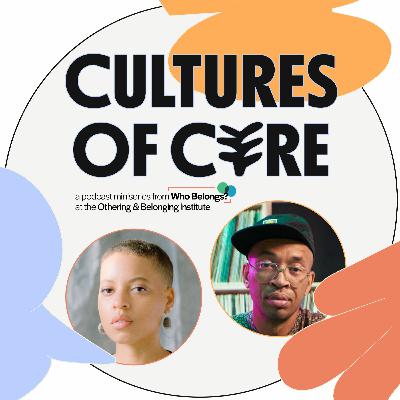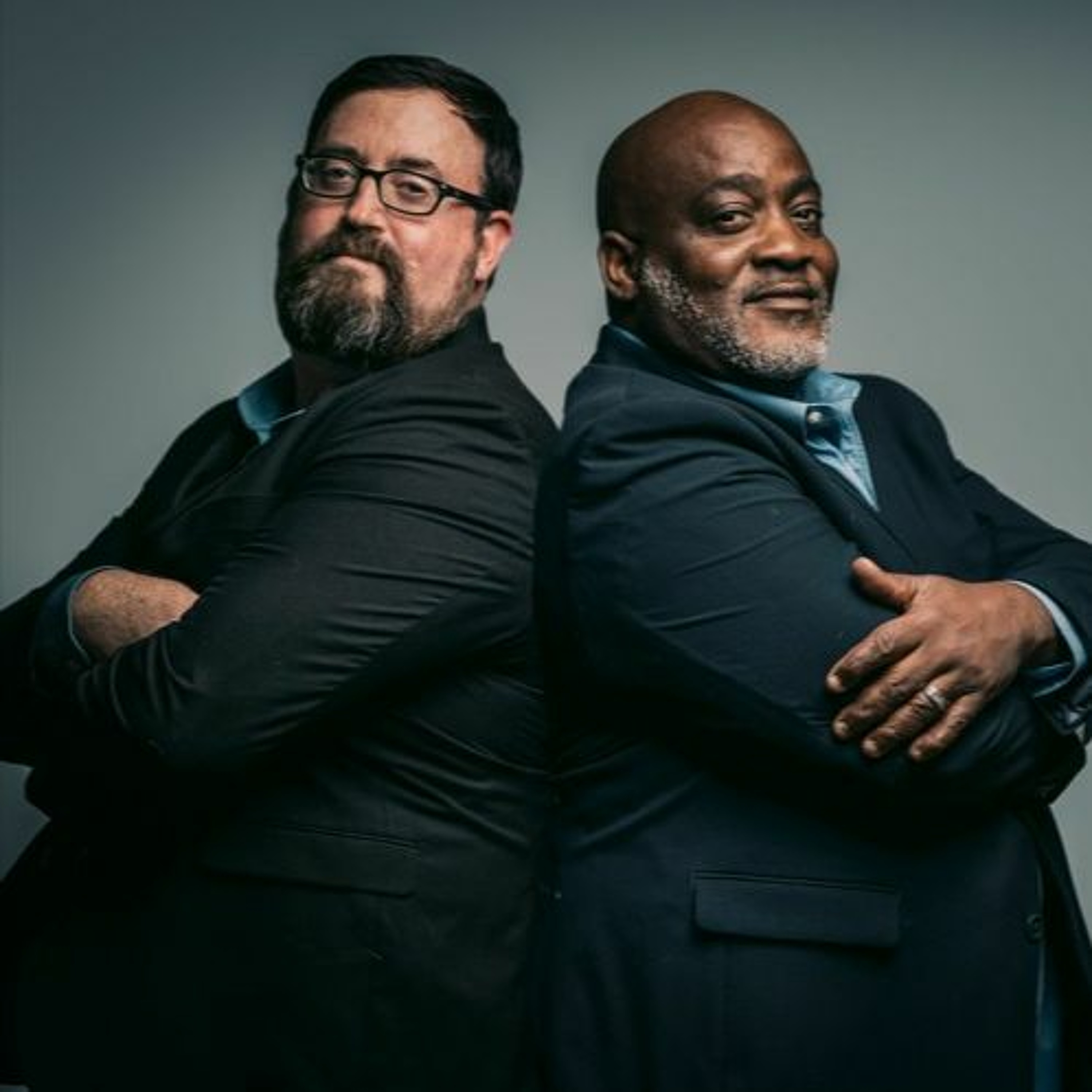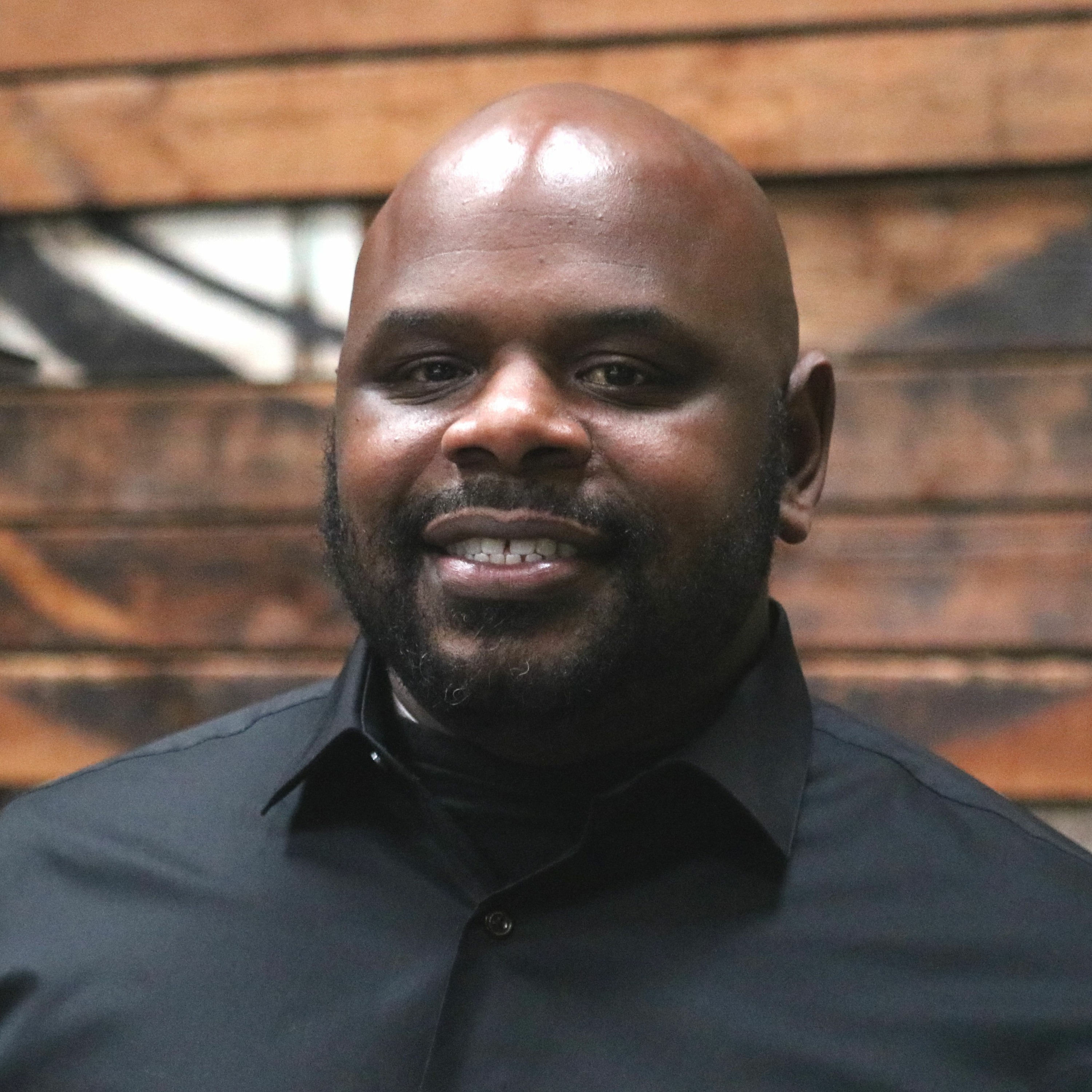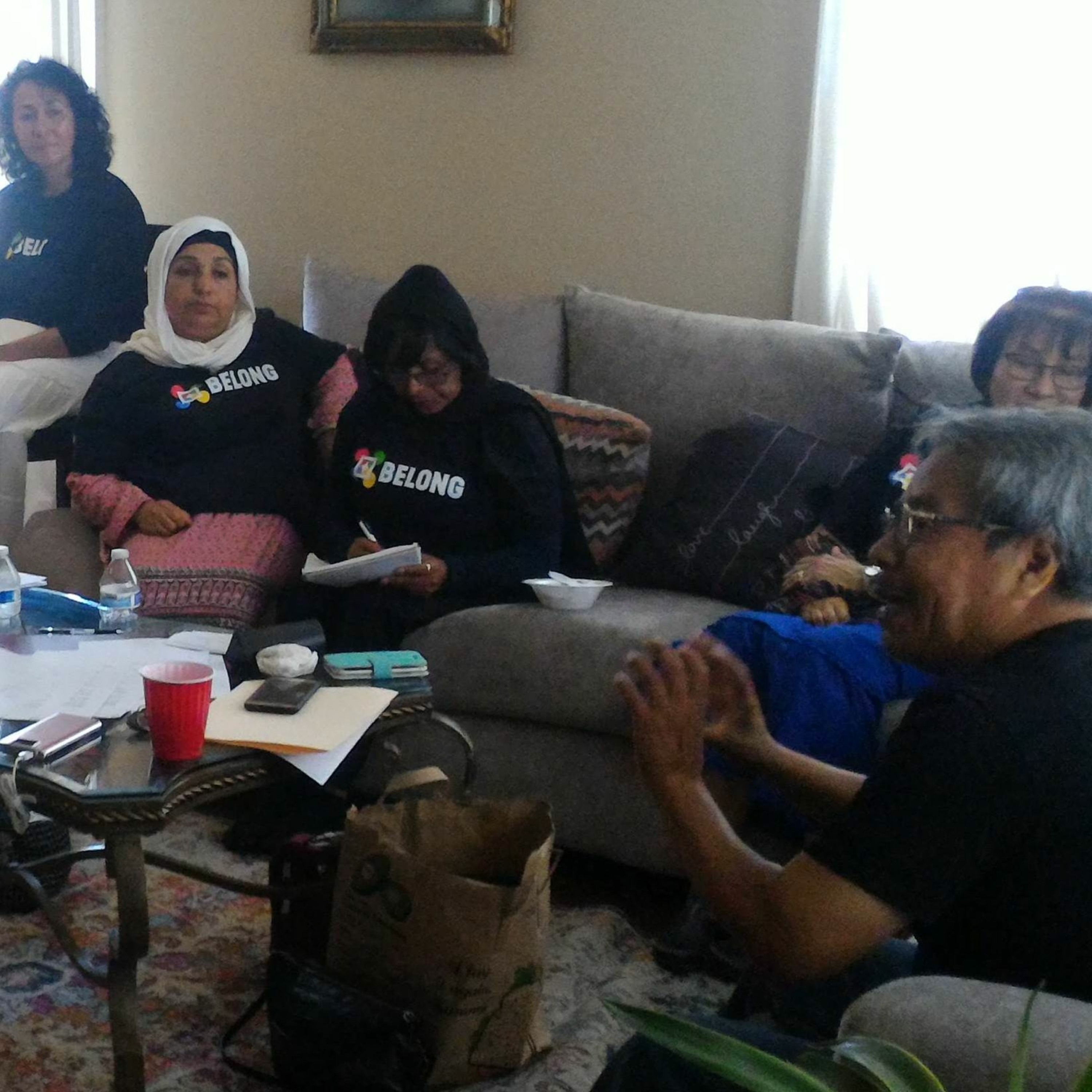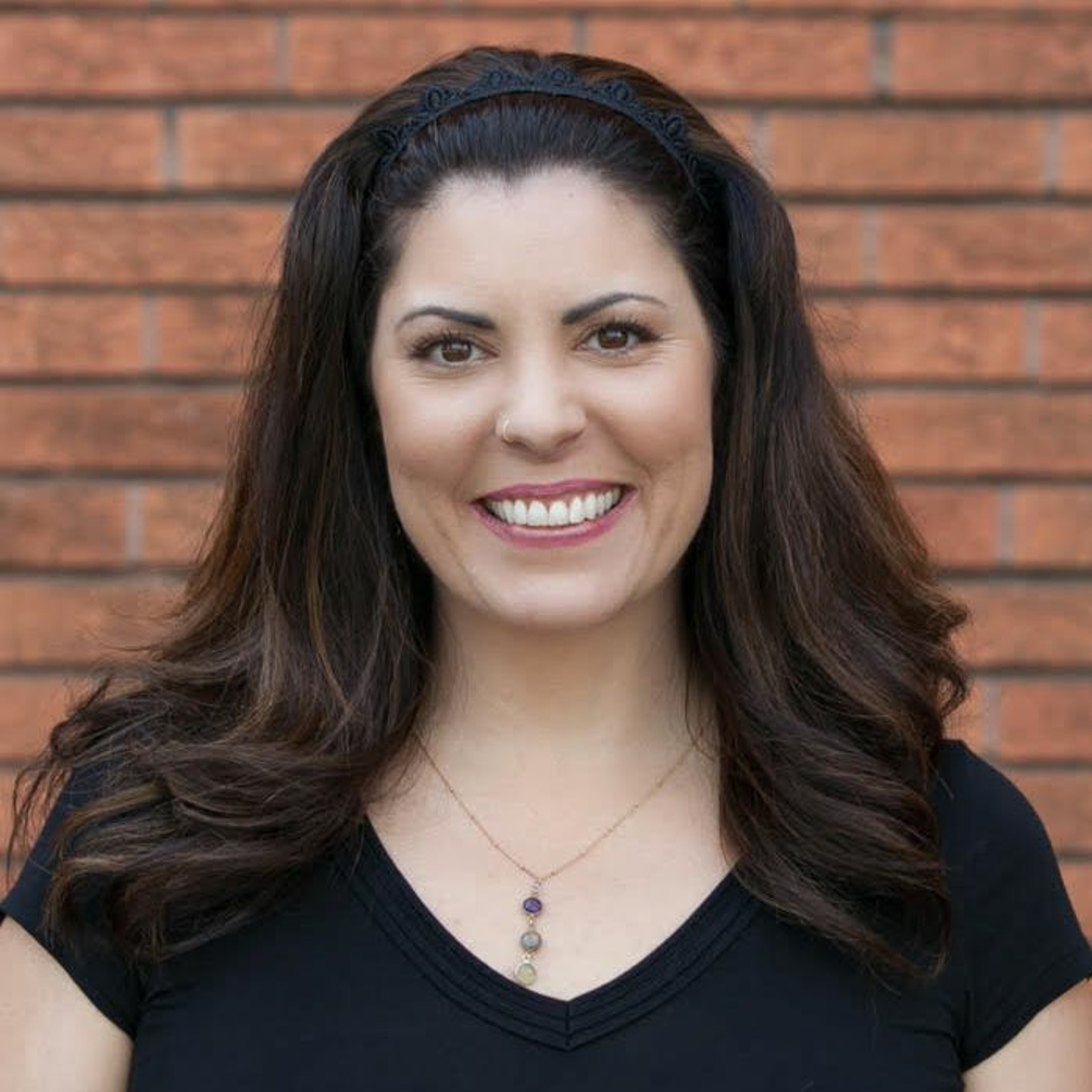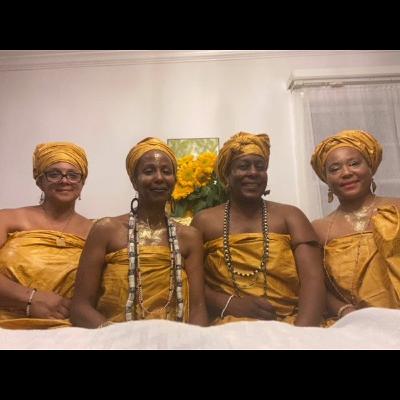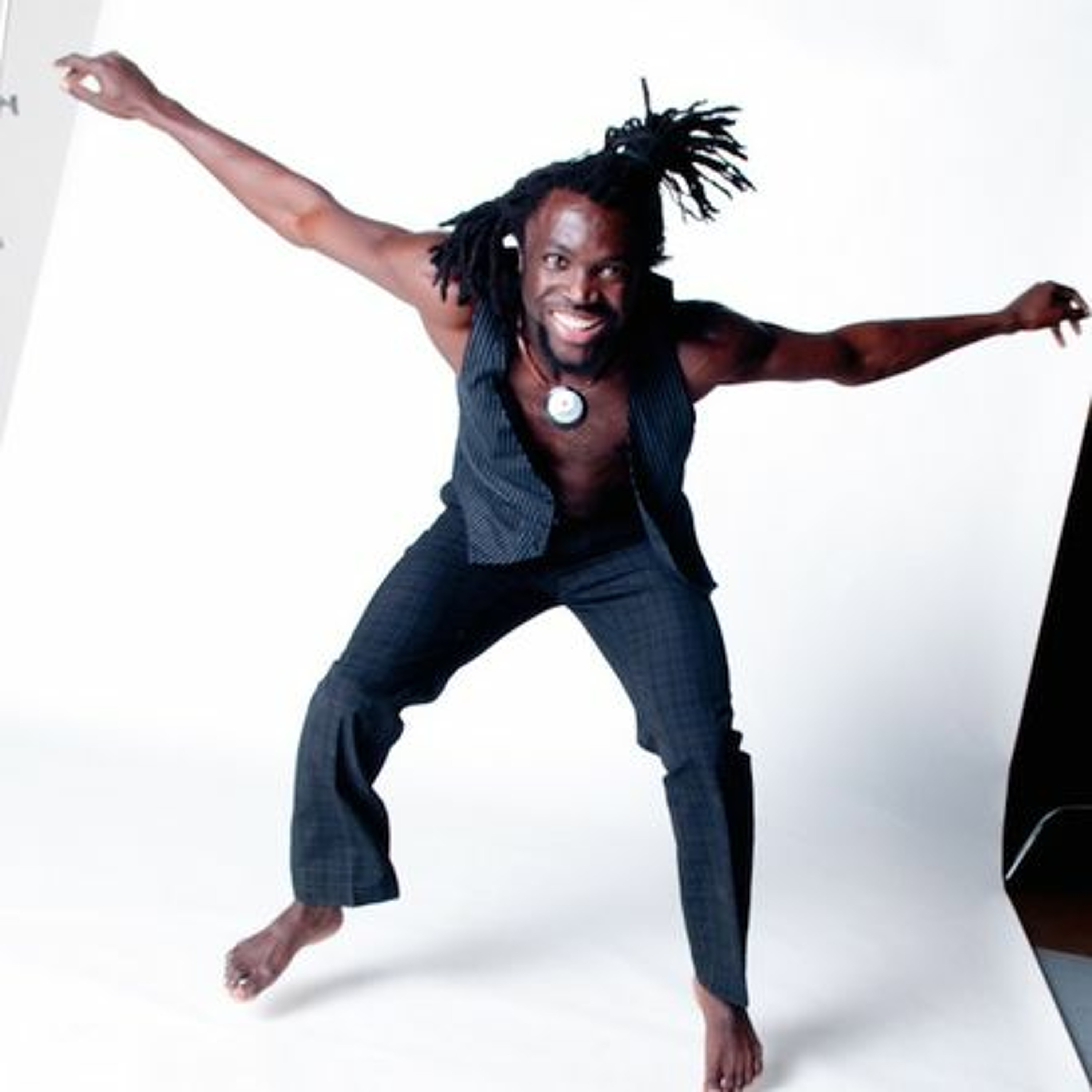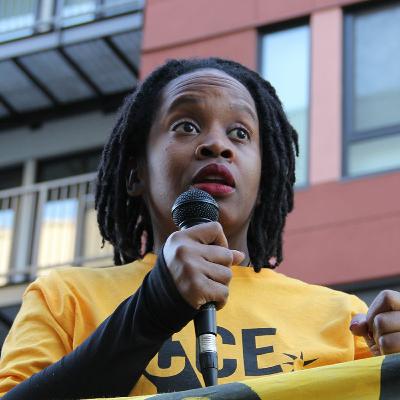Discover Who Belongs? A Podcast on Othering & Belonging
Who Belongs? A Podcast on Othering & Belonging
Who Belongs? A Podcast on Othering & Belonging
Author: Original podcast from the Othering and Belonging Institute
Subscribed: 44Played: 1,023Subscribe
Share
© All rights reserved
Description
Who Belongs? was launched in Fall 2018 as the Othering & Belonging Institute's official podcast. The question of who belongs in our societies, whether local, national, or global, is one of the central drivers that underpin how people are othered, or how the conditions of belonging are created. Our podcast addresses this foundational question to open pathways to explore a range of policies, movements, scholarship, and narratives that get us closer to the goal we seek, which is to advance a society where all belong.
For more information visit: https://belonging.berkeley.edu/whobelongs/about
For more information visit: https://belonging.berkeley.edu/whobelongs/about
49 Episodes
Reverse
Welcome back to Cultures of Care, a special new miniseries from Who Belongs? hosted by Evan Bissell and Giovanna Fischer. This series celebrates people that practice collective care in unconventional and insurgent ways. Visit the project, read more about our interviewees, and check out transcripts for this episode at https://belonging.berkeley.edu/cultures-of-care.
In this episode, we hear from photographer Naima Green and DJ Rich Medina.
Naima is an artist, photographer and educator from New York. Her work is an invitation to participate, observe and consider safety, utopia and intimacy. You can view her work here at http://www.naimagreen.com/, and follow her on social media on Twitter, @naimapatrice, and on Instagram, @naimagreen/.
Rich is a world-renowned, Philadelphia-based DJ, producer, poet, journalist, and lecturer on hip hop and music theory. Since the onset of the Covid-19 pandemic, Rich has been cultivating a vibrant online space for a globe-spanning community to gather, listen, dance, meditate, and tap into collective joy and release during a time of social isolation. You can see visit his website at https://richmedina.com/ and follow him on Instagram @richmedina.
These interviews were edited by Majo Calderon and adapted for podcast by Erfan Moradi, with original music created by Alex Lemire Pasternak. Additional music in this episode is by Mini Vandals, Bad Snacks, Emily Sprague, and Silent Partner.
Thanks for listening!
In this episode of Who Belongs?, we're debuting Cultures of Care, a special new miniseries hosted by Evan Bissell and Giovanna Fischer. This series celebrates people that practice collective care in unconventional and insurgent ways. Care is an essential, immediate and practical way to create belonging. Perhaps most vitally in our urgent times, at the heart of each profile you will find provocations that are seeds for reshaping society and how we relate to each other and the world. Visit the project, read more about our interviewees, and check out transcripts for this episode at https://belonging.berkeley.edu/cultures-of-care.
We spoke with Nicki Jizz and Kristina Wong for this episode.
Nicki is a Black, San Francisco-based drag queen who founded Reparations: an all-Black Drag Show in June of 2020. In the monthly online show, Nicki creates a vibrant online space centered around beautiful, hilarious, thought-provoking and sensual performances by Black performers. Check out Reparations at Oasis here, https://www.sfoasis.com/reparations, and follow Nicki on her social media to keep up with her work: @nicki_jizz on Instagram and @nickijizz on Facebook.
Kristina is a comedian and performance artist who founded the Auntie Sewing Squad, a network of hundreds of Aunties across the United States who have sewn and shipped tens of thousands of masks to First Nations, farmworkers, migrants seeking asylum, incarcerated communities and poor communities of color. Learn more about the Aunties here at their website, http://auntiesewingsquad.com/, and keep up with Kristina's work here at https://www.kristinawong.com/.
These interviews were edited by Majo Calderon and adapted for podcast by Erfan Moradi, with custom music created by Alex Lemire Pasternak. Additional music in this episode is by Emily Sprague, Puddle of Infinity, and Silent Partner.
Thanks for listening!
In this episode we speak with two of the founding members of the Florida Rights Restoration Coalition, the President Desmond Meade and the Political Director Neil Volz. Together, Desmond and Neil have been working on restoring the rights of people who have a prior felony conviction, referred to as returning citizens. In 2018, they were successful in passing amendment 4 that restored the right of over 1.4 million Floridians to vote. How were they successful getting 65% of Floridians to support this amendment? Bridging. In this episode Desmond and Neil discuss their personal path into this work and how they successfully led a campaign through bridging that returned citizens and accordingly restored their right to vote.
This episode of Who Belongs? is part of a new series of podcasts focused on telling bridging stories. Throughout the series we’ll talk to leaders implementing bridging work and individuals who have experienced the bridging transformation. This project is led by OBI’s Blueprint for Belonging project (B4B), and this episode is hosted by strategy analyst Gerald Lenoir. This project is funded by The Annie E. Casey Foundation, Inc.
Visit our website at https://belonging.berkeley.edu/bridging-belonging-case-series to explore all of the case studies in the Bridging to Belonging series.
In this episode we speak with Reverend Ben McBride. Ben McBride is a spiritual leader and longtime activist for peace and justice in the Bay Area. McBride serves as a national leader around reconstructing public safety systems and gun violence prevention work. In 2014, McBride launched the Empower Initiative to support bridging and belonging work across the country. McBride shares how he conceptualizes the building, bridging, belonging, and becoming frameworks. He outlines how cultural and structural belonging can occur, and the role that we each can play in creating a world where everyone belongs.
This episode of Who Belongs? is part of a new series of podcasts focused on telling bridging stories. Throughout the series we’ll talk to leaders implementing bridging work and individuals who have experienced the bridging transformation. This project is led by OBI’s Blueprint for Belonging project (B4B), and this episode is co-hosted by program researcher Miriam Magaña Lopez and EJ Toppin. This project is funded by The Annie E. Casey Foundation, Inc.
Visit our website at https://belonging.berkeley.edu/bridging-belonging-case-series to explore all of the case studies in the Bridging to Belonging series.
In this episode we interview with Debbie Lacy. Debbie is the founder of Eastside for All, which serves communities outside of Seattle, WA including Bellevue, Kirkland, Redmond, Issaquah and Sammamish. Eastside for All has a mission to transform East King County into a place where racial, economic and social justice are realized, and belonging is made possible for communities of color. Debbie shares about her Build for Belonging Initiative and specifically her use of the co-creation framework as she advocates to build a cross-cultural center with belonging in mind.
This episode of Who Belongs? is part of a new series of podcasts focused on telling bridging stories. Throughout the series we’ll talk to leaders implementing bridging work and individuals who have experienced the bridging transformation. This project is led by OBI’s Blueprint for Belonging project (B4B), and hosted by program researcher Miriam Magaña Lopez. This project is funded by The Annie E. Casey Foundation, Inc.
Visit our website at https://belonging.berkeley.edu/bridging-belonging-case-series to explore all of the case studies in the Bridging to Belonging series.
In this episode we speak with Angel Mortel and Aleena Gonzalez. Angel is a lead organizer with LA Voice, which is a multi-racial and multi-faith community organization that awakens people to their own power and trains them to organize together. LA Voice has been implementing the Belong Circles with their partner network, including at Dolores Mission Church. Aleena Gonzalez is a high school student that is part of the Dolores Mission community who has participated in Belong Circles and is now leading circles with other young people.
In the last episode we spoke with Ashlin Maluuf-Gashaw from PICO California about the design and intention of the Belong Circles. Angel and Aleena will both share with us what the Belong circles have meant to them as organizers and participants.
This episode of Who Belongs? is part of a new series of podcasts focused on telling bridging stories. Throughout the series we’ll talk to leaders implementing bridging work and individuals who have experienced the bridging transformation. This project is led by OBI’s Blueprint for Belonging project (B4B), and hosted by program researcher Miriam Magaña Lopez. This project is funded by The Annie E. Casey Foundation, Inc.
Visit our website at https://belonging.berkeley.edu/bridging-belonging-case-series to explore all of the case studies in the Bridging to Belonging series.
In this episode we speak with Ashlin Malouf-Gashaw. Ashlin is the Chief Formation Officer at PICO California, the largest multi-racial faith-based community-organizing network in the state. PICO is leading The Belong Movement, which aims to address the polarization and racial anxiety across California by bridging across race, faith and status through facilitated Belong Circles. Ashlin shares the intention and design behind the Belong Circles, and how anyone, including our listeners can implement them in their own community. To learn more about Belong Circles go to picocalifornia.org.
This episode of Who Belongs? is part of a new series of podcasts focused on telling bridging stories. Throughout the series we’ll talk to leaders implementing bridging work and individuals who have experienced the bridging transformation. This project is led by OBI’s Blueprint for Belonging project (B4B), and hosted by program researcher Miriam Magaña Lopez. This project is funded by The Annie E. Casey Foundation, Inc.
Visit our website at https://belonging.berkeley.edu/bridging-belonging-case-series to explore all of the case studies in the Bridging to Belonging series.
In this episode we speak with Roberto Bedoya. Roberto is the Cultural Affairs Manager for the City of Oakland in California. He developed the City’s Cultural Plan, titled, Belonging in Oakland. Throughout his career Roberto has consistently advocated for inclusion and belonging in the cultural sector. In our conversation, Roberto shares how he’s utilized belonging in his city planning work through intentional grant giving, and encouraging city departments to re-think how Oakland residents interact with each other and with physical spaces around the city.
This episode of Who Belongs? is part of a new series of podcasts focused on telling bridging stories. Throughout the series we’ll talk to leaders implementing bridging work and individuals who have experienced the bridging transformation. This project is led by OBI’s Blueprint for Belonging project (B4B), and hosted by program researcher Miriam Magaña Lopez. This project is funded by The Annie E. Casey Foundation, Inc.
Visit our website at https://belonging.berkeley.edu/bridging-belonging-case-series to explore all of the case studies in the Bridging to Belonging series.
In this episode we speak with Tamia Dantzler & Dashley Concepcion. Tamia is an alum and Dashley is a current student at El Puente Academy for Peace and Justice. In a previous episode we spoke with Frances Lucerna, founding principal of El Puente Academy for Peace and Justice. We heard from Frances about the school design and intentions, in this conversation Tamia & Dashley share with us their personal experience. They tell us what it has meant to be students at a school that makes them feel seen and heard.
This episode of Who Belongs? is part of a new series of podcasts focused on telling bridging stories. Throughout the series we’ll talk to leaders implementing bridging work and individuals who have experienced the bridging transformation. This project is led by OBI’s Blueprint for Belonging project (B4B), and hosted by program researcher Miriam Magaña Lopez. This project is funded by The Annie E. Casey Foundation, Inc.
Visit our website at https://belonging.berkeley.edu/bridging-belonging-case-series to explore all of the case studies in the Bridging to Belonging series.
In this episode we speak with Frances Lucerna. Frances is the founding principal of El Puente Academy for Peace and Justice. El Puente Academy for Peace and Justice is a public school located in the Southside community of Williamsburg in Brooklyn, New York City. El Puente is Spanish for ‘the bridge’ - which is exactly what the school is doing: creating bridges between the school and students, parents and the community. Frances shares how she and other community leaders created and designed a school environment that fosters a true sense of belonging among all students and their families.
This episode of Who Belongs? is part of a new series of podcasts focused on telling bridging stories. Throughout the series we’ll talk to leaders implementing bridging work and individuals who have experienced the bridging transformation. This project is led by OBI’s Blueprint for Belonging project (B4B), and hosted by program researcher Miriam Magaña Lopez. This project is funded by The Annie E. Casey Foundation, Inc.
Visit our website at https://belonging.berkeley.edu/bridging-belonging-case-series to explore all of the case studies in the Bridging to Belonging series.
In this episode we interview two of the founding members of The Wind & The Warrior, Ife Afriye Kilimanjaro and Nana Korantema. In 2020, The Wind & The Warrior led a Sacred Waters Pilgrimage to connect Black and Native culture-bearers and advocacy leaders working to address the climate crisis for ritual and conversation. Throughout the pilgrimage, they made 7 stops along the Mississippi River. In each stop The Wind & The Warrior coordinated with local Native womxn to connect through ritual and conversation. Ife Afriye Kilimanjaro and Nana Korantema share with us how their journey allowed them to create bridges between Black and Native womxn and between humans and Mother Earth.
This episode of Who Belongs? is part of a new series of podcasts focused on telling bridging stories. Throughout the series we’ll talk to leaders implementing bridging work and individuals who have experienced the bridging transformation. This project is led by OBI’s Blueprint for Belonging project (B4B), and hosted by program researcher Miriam Magaña Lopez. This project is funded by The Annie E. Casey Foundation, Inc.
Visit our website at https://belonging.berkeley.edu/bridging-belonging-case-series to explore all of the case studies in the Bridging to Belonging series.
In this episode we interview Byb Bibene. Byb is a professional performer, choreographer, dance artist, director and dance educator originally from the Republic of Congo. Currently he lives in the Bay Area in California. Byb has participated in the African Diaspora Dialogues hosted by Nunu Kidane and Gerald Lenoir. In our last episode, we got to hear from Nunu and Gerald about what it means to organize dialogues. In this conversation, Byb shares his experience as a dialogue participant and how he’s incorporated bridging into his own professional work. To learn more about Byb Bibene’s work please go to mbonguifest.org and kiandandadt.com.
This episode of Who Belongs? is part of a new series of podcasts focused on telling bridging stories. Throughout the series we’ll talk to leaders implementing bridging work and individuals who have experienced the bridging transformation. This project is led by OBI’s Blueprint for Belonging project (B4B), and hosted by program researcher Miriam Magaña Lopez. This project is funded by The Annie E. Casey Foundation, Inc.
Visit our website at https://belonging.berkeley.edu/bridging-belonging-case-series to explore all of the case studies in the Bridging to Belonging series.
In this episode we hear from Gerald Lenoir and Nunu Kidane about their work on bridging African American and African immigrant communities through dialogues. Gerald is OBI’s identity and politics strategy analyst and was the founding executive director of the Black Alliance for Just Immigration (BAJI). Nunu was a founding member of BAJI and is currently the director of Priority Africa Network.
Gerald and Nunu share their experience facilitating Diaspora Dialogues, which are intentional conversations used to bridge African American and immigrant communities. Listeners will learn how the dialogues are organized and get tips on how to replicate this work.
This episode of Who Belongs? is part of a new series of podcasts focused on telling bridging stories. Throughout the series we’ll talk to leaders implementing bridging work and individuals who have experienced the bridging transformation. This project is led by OBI’s Blueprint for Belonging project (B4B), and hosted by program researcher Miriam Magaña Lopez. This project is funded by The Annie E. Casey Foundation, Inc.
Visit our website at https://belonging.berkeley.edu/bridging-belonging-case-series to explore all of the case studies in the Bridging to Belonging series.
In this episode we interview UC Berkeley Professor and OBI Director john a. powell. john a. powell is an internationally recognized expert in the areas of civil rights, civil liberties, structural racism, housing, poverty, democracy, and othering, bridging and belonging frameworks-- which he has been critical in developing and translating between academia and fields of practice. In this interview, Professor powell breaks down the definitions of othering, bridging and belonging. Through storytelling he elucidates how both interpersonal and structural othering occurs, and how people and organizations have been successful in addressing it. He gives advice to listeners so that we can all play a role in co-creating a society where everyone belongs.
This episode of Who Belongs? is part of a new series of podcasts focused on telling bridging stories. Throughout the series we’ll talk to leaders implementing bridging work and individuals who have experienced the bridging transformation. This project is led by OBI’s Blueprint for Belonging project (B4B), and hosted by program researcher Miriam Magaña Lopez. This project is funded by The Annie E. Casey Foundation, Inc.
Visit our website at https://belonging.berkeley.edu/bridging-belonging-case-series to explore all of the case studies in the Bridging to Belonging series.
In this episode of Who Belongs? we look at the impacts of minimum wage increases with Michael Reich, a Professor of Economics and Chair of the Center on Wage and Employment Dynamics at UC Berkeley.
The federal minimum wage has been frozen at $7.25 an hour since 2009. That's an annual income for a full time worker of just $15,000. But a few weeks ago Senator Bernie Sanders and other progressive legislators introduced the 2021 Raise the Wage Act, which would gradually increase the federal minimum wage to $15 an hour by 2025. After 2025 the minimum wage would continue to increase to keep up with inflation without having to introduce new legislation every few years. The lawmakers had been trying to get this act included in the coronavirus relief package so it could be passed with a simple majority, but on Thursday we learned that's probably not going to happen because of an archaic Senate rule, meaning it would need to be introduced as a standalone bill and require 60 votes to pass, which is unlikely.
Our guest Michael Reich is a leading expert on minimum wage research and has published extensively on the topic, including a recent study on how minimum wage hikes reduce racial wage gaps between black and white workers. So we'll discuss that, as well address some of the common critiques of minimum wage increases.
Check back for a link to a transcript of this interview.
In this episode of Who Belongs? we hear from Jacinta González, an organizer with Mijente, a non-profit which leads campaigns to educate and organize around issues concerning immigration, detentions and deportations. Jacinta explains how ICE and other law enforcement agencies are using surveillance technologies to target immigrant communities and other communities of color, and gives us her take on what the new administration in Washington must do about it. This interview was conducted by Emnet Almedom, a policy analyst here at OBI.
For a transcript of this interview visit https://belonging.berkeley.edu/whobelongs/ice-tech
In this episode of Who Belongs?, we hear from three thinkers and members of the OBI faculty — john a. powell, Ian Haney López, and Emnet Almedom — on the situation unfolding in the wake of the Washington D.C. riots. This past week, we saw remarkable scenes of violence take place at the country’s Capitol Building. Our guests will help us make sense of what happened, how race and class politics shaped the events, and what social solidarity can offer us moving forward.
This episode is a recording of a live Q&A titled “Storming the Capitol: Trumpism’s Last Stand” which took place on January 8, 2021. The recording has been lightly edited for concision.
john a. powell is the Othering & Belonging Institute director and Professor of Law. Ian Haney López is a Professor of Law and author of the book Merge Left: Fusing Race and Class, Winning Elections, and Saving America. Emnet Almedom, an analyst at the institute, moderated this event.
For a transcript of this episode, please visit https://belonging.berkeley.edu/whobelongs/storming-the-capitol
In this episode of Who Belongs?, we speak with two activists based in France — Yasser Louati and Houria Bouteldja — about the intensification of Islamophobia and state repression unfolding in the country following Samuel Paty's gruesome murder. Our guests help us understand the current situation as it relates to the country's history of racist marginalization and terror attacks, what strategies affected communities must embrace to combat Islamophobia, and what this means for Muslims and non-Muslims alike.
Yasser Louati is a human rights advocate and head of the Justice & Liberties for All Committee. Houria Bouteldja is a decolonial activist, author, and founding member of the Party of the Indigenous of the Republic. The music heard at the introduction is “La carte de residence” performed by Algerian singers Sliman Azem & Cheikh Nourredine.
For a transcript of this episode visit https://belonging.berkeley.edu/whobelongs/Islamophobia-in-france
In this episode of Who Belongs? we speak with Lara Kiswani, Executive Director of the Arab Resource and Organizing Center based in San Francisco, and Theresa Montaño, professor of Chicana and Chicano Studies at California State University, Northridge, to discuss the efforts to develop an ethnic studies curriculum in California. On September 30, California Governor Gavin Newsom vetoed Assembly Bill 331 which would have made ethnic studies a high school graduation requirement across the state. For more than a year, Professor Montaño has been a part of an advisory committee tasked with drafting a model curriculum based on the anti-racist principles of ethnic studies.
The curriculum provides sample lesson topics on things like housing segregation, Central American immigration, Filipino labor organizing, and indigenous struggles over land, just to name a few. Lara Kiswani’s organization, AROC, is part of the coalition promoting the inclusion of lessons related to the experiences of Arab Americans. The guests help us understand why ethnic studies is needed, why the bill was vetoed, and what comes next.
For a transcript of this episode visit https://belonging.berkeley.edu/whobelongs/why-newsom-vetoed-ethnic-studies
In this episode of Who Belongs?, we speak with Carroll Fife, an organizer, mother, and director of the Oakland office of the Alliance of Californians for Community Empowerment, also known as ACCE. Earlier this year, she was involved in coordinating the #Moms4Housing campaign in which the five Black women took over a vacant home on Magnolia Street in Oakland. She joins us to speak about the history of speculative housing and its impacts on the Black community, the looming eviction crisis, houselessness, and police violence.
For a transcript of this episode visit https://belonging.berkeley.edu/whobelongs/eviction-crisis-speculative-housing-carroll-fife


